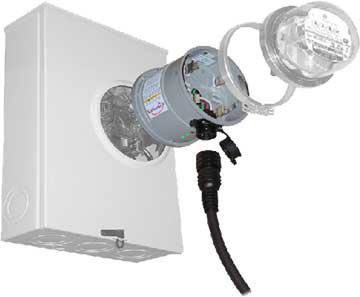Building your own genset is a little more involved than you might think... I'll provide some background but in the end, I'll flat-out recommend getting (for your case) an 8000W gasoline portable because building a proper unit takes some time and money.
Some basics (learned from the school of hard knocks):
Most gasoline units and even the natural gas ones with twin cylinder engines tend to rattle themselves to death after a while. None of them have service lives much beyond 1000 hours before they need new valves and rings. Often times, the valve heads need to be replaced because the valve seats are not resurfacable. The work is not hard to do yourself though. My biggest complaint is the noise from a 3600 RPM engine. Even with mufflers installed, they're noisy. Despite all this, it's still not a bad deal financially.
When making a high-service-life unit, you need a diesel engine that puts out the required horsepower at 1800 RPMs. Most genheads need to be driven at either 1800 or 3600 RPM. You're not going to find any diesel engines that spin at 3600. The next trick is to get a governor to keep the speed exactly at 1800 (+/- 2%). Some engines have built-in governors. External governors are quite costly. I'm a big fan of Kubota diesel engines. They are perfect for this application and are the #1 engine used in truck refrigeration units. There are millions of them out there and they run the daylights out of them. You can buy them used for about a grand and spend another $600 to rebuild them (if you do it yourself). You'll need a 40HP motor to produce 20kW (when running at 1800 RPM). You need to look-up the HP rating curve of the engine to verify proper sizing. As a rule of thumb (which is very accurate) multiply horsepower x 700 to determine how many Watts are available. This figure takes into account losses and overhead capacity to increase service rating.
Next trick is the gen head and this is what I always use:
http://www.ebay.com/itm/24KW-ST-Gen...02657318?pt=BI_Generators&hash=item35cecab326
After this, get the welder out and make a frame to mount the engine. Buy direct couplers to drive the generator (don't go with sheaves and belts). Make a stout steel frame and set it on wood planks.
There are some commercially available engine control units... I always made my own.
OK, all this sounds easy but, it's more involved and expensive than you might think -and that's why I generally recommend a portable gasoline unit. Try to get one with twin cylinder engine as they run smoother and you'll see less flicker. If you maintain it well, run it under load every 4 months, drain the fuel when not in use -you'll get good enough service out of it.
EDIT: BTW, you need a good radiator and the engine must have a fan. A pusher fan is not necessary but nice. A typical automotive pull fan works well. Just make sure the radiator has shroud if you use a puller fan.
Ray


